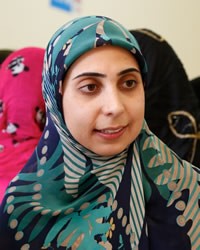The Syro-Lebanese Arabs in Australia trace their ancestry to Syria, Lebanon, and in some cases adjacent Levantine areas; many came as immigrants or refugees. There were several waves of migration: early migration in the late 19th / early 20th centuries, more after World War II, then larger influxes during and after the Lebanese Civil War starting in 1975.
They brought the Levantine variety of Arabic (often called Levantine Arabic, or Syrian Arabic) as well as their other dialects and often maintained that in homes, in church or mosque settings, in community life. Many also adopted English, especially in subsequent generations.
Culturally, they often kept their religious traditions, social customs, family structures, food, music, and community networks, while also adapting to Australian society in terms of schooling, work, housing, and civic life.
Many in the Syro-Lebanese community live in urban centers, especially in New South Wales (e.g. Sydney and its western suburbs) and Victoria, with smaller populations in other states.
They are engaged in a wide variety of occupations: from commerce (shops, restaurants, grocery stores), professional work, trade, health, education, to community services. Some second- or third-generation individuals are well integrated into the broader Australian professional classes.
Many families maintain strong cross-generational ties, often caring for elders, participating in community organizations, cultural clubs, religious institutions (churches, mosques), and mother-tongue social life.
At the same time, some face challenges: language barriers for recent immigrants, cultural friction or identity issues for younger people (balancing Australian and Arab culture), possible discrimination or stereotyping, difficulties in navigating health, welfare or social services especially for those less fluent in English.
The Syro-Lebanese Arabs in Australia are religiously diverse. There are large numbers of Muslims (Sunni and Shia), and many Christians (Maronite, Melkite, Orthodox, and others) among them.
Churches and mosques serve not only religious but also social, cultural, and sometimes welfare roles in their communities. Religious festivals and rituals from Lebanon/Syria (e.g. Christmas, Easter, Ramadan, Eid, Saints' days) are often observed, sometimes in conjunction with community and cultural gatherings.
Many community members maintain some connection (spiritual, emotional, perhaps financial or familial) to religious life in their ancestral countries, sometimes supporting or being involved in churches or mosques there. Some younger or mixed-heritage individuals may attend religious institutions less frequently or feel less tied to one particular tradition.
Syro-Lebanese Arabs in Australia have deep spiritual needs that call for a compassionate, culturally sensitive approach grounded in both faith and understanding. They need a clear and respectful presentation of the gospel—one that honors their Arab Christian heritage while remaining mindful of their Muslim neighbors—so that people from both Christian and non-Christian backgrounds can encounter Jesus without offense. Access to Bible and discipleship materials in Arabic, particularly in the Levantine dialect, along with bilingual resources, is essential to help bridge the gap between their rich Arabic roots and the English-speaking context, especially for youth and recent immigrants. Spiritually thriving communities also require opportunities for local Christian leadership, empowering Syro-Lebanese believers who understand both the cultural nuances and the Australian landscape to lead churches and ministries effectively.
Support for youth and families is critical, particularly as they navigate questions of identity, belonging, intergenerational tensions, and cultural preservation—ensuring that young people grow up feeling connected rather than alienated. Finally, welfare and social support for the most vulnerable—such as recent arrivals, elderly immigrants with limited resources, and those facing isolation—are integral to a holistic expression of God's love, meeting both physical and spiritual needs within the community.
Pray for the Syro-Lebanese Arab Christian community, asking that believers would be filled with boldness, wisdom, and compassion as they witness to friends, relatives, and neighbors—especially among Muslims and those from mixed faith backgrounds.
Pray that Arabic-language Scripture and discipleship resources, particularly in Levantine dialects, would be translated, distributed, and embraced by both older immigrants and second-generation youth.
Pray for the youth, that they would find their identity in Christ enabling them to live with purpose, hope, and confidence.
Pray for churches and Christian organizations to be equipped to raise up local leaders who can navigate both Arab and Australian cultures, speaking into the heart languages of their communities, winning people to Christ, and making disciples.
Scripture Prayers for the Arab, Syro-Lebanese in Australia.
Lebanese in Australia — Cultural Atlas (sbs.com.au)
"Lebanese community profile | Victoria" Government of Victoria site Victoria Government
"Lebanese Community Mental Health Profile - Transcultural Mental Health Centre, NSW"
"Australian Leb
| Profile Source: Joshua Project |










